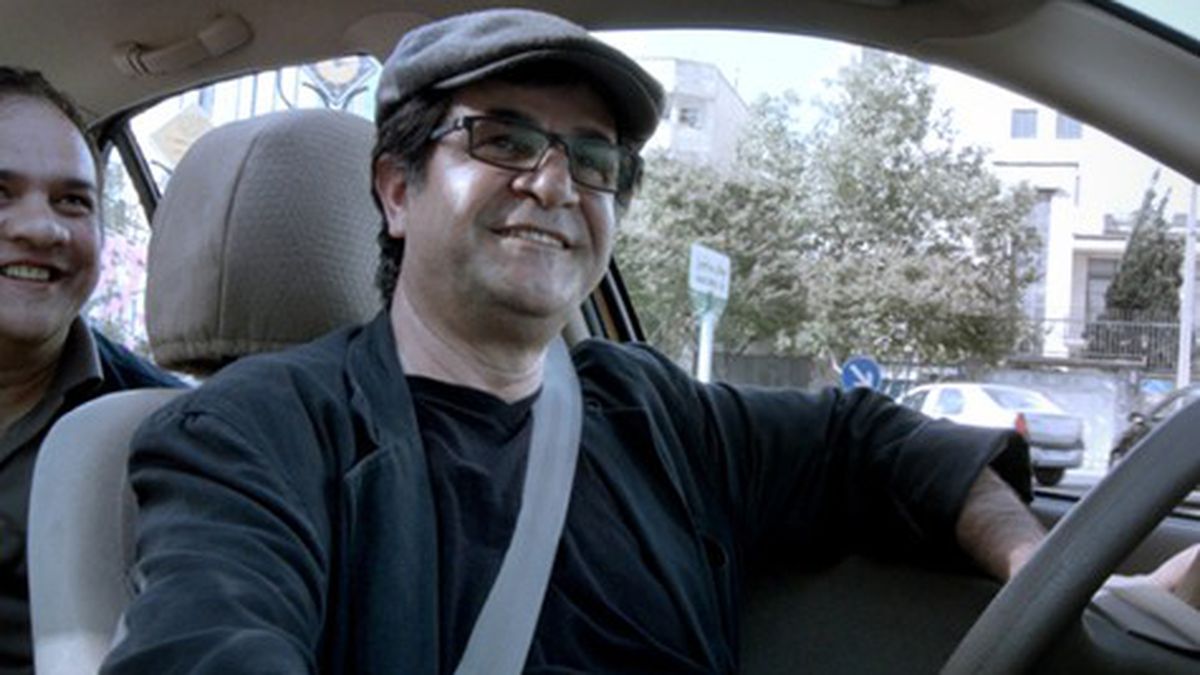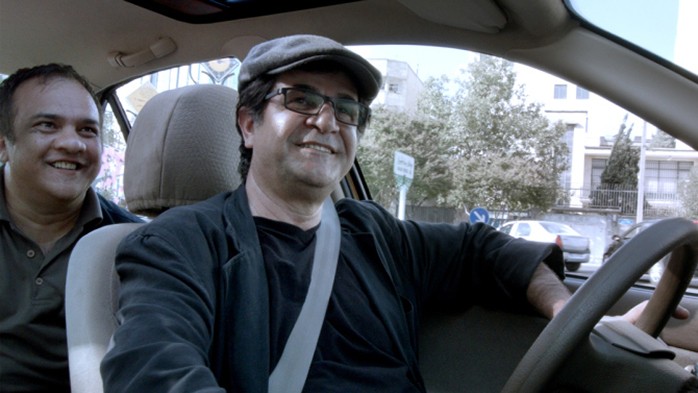For those unfamiliar with the name, Jafar Panahi is part of the wave of Iranian filmmakers that established itself on Western screens with groundbreaking, politically daring films beginning in the 1990s. Alongside his compatriots Abbas Kiarostami, Mohsen Makhmalbaf, Majid Majidi, and Marjane Satrapi, among many others, Panahi specializes in veiled, and sometimes not so veiled, commentaries on life in contemporary Iran — with the common theme that modern Iranians are hungry for various kinds of freedom.
Not surprisingly, such messages have drawn fire from the country’s ultra-conservative religious oligarchy. In 2010, Panahi was placed under house arrest while awaiting sentencing on charges of defaming the government. His response was to make This Is Not a Film, a documentary shot in his Tehran flat, depicting his daily routine intercut with a critique of the suppressed Iranian cinema. The doc was smuggled out of the country and unsurprisingly attracted controversy in the West. Despite the vocal support of international film folks, he was sentenced to a twenty-year ban on movie-making, travel outside his homeland, and giving interviews. Panahi, however, does not cave easily.
Which brings us to Panahi’s Taxi. It opens with a Tehran street scene as viewed from a stationary camera mounted on a taxi’s dashboard. Suddenly the camera swivels around, and as the film goes on we encounter a procession of passengers and passersby interacting with the “taxi driver” (the director himself) and speaking their minds on everything from the number of thieves in the capital to the desirability of Hollywood movies to Iran’s Topic Number One: the omnipresent fear of saying or doing the wrong thing and feeling the wrath of the Islamist theocracy. It’s a talky, bumpy ride, and before it’s over we realize we’re engrossed in one of the most original, most intelligent films of 2015 — part documentary, part scripted “reality” show, and 100 percent Panahi.
Panahi himself is a jovial-faced presence in the driver’s seat, calm and collected no matter what calamities occur in the street. As the taxi tools around the city, some of the passengers recognize him as Panahi, but most have their own problems to deal with. A sweating DVD delivery guy discusses movie stars with a customer. The taxi passes an accident scene and picks up a bloody, injured man accompanied by a hysterical woman, and takes them to a hospital. Two elderly women are comically convinced that if they don’t put those goldfish in the bowl they’re carrying into Ali’s Spring at the stroke of noon, the women will die. A longtime friend of the driver/director has an urgent matter to deal with involving adultery. And so on.
The plot thickens considerably when the driver’s niece — a young film student named Hana — gets in. Inquisitive as only a pre-teen schoolgirl can be, Hana does not varnish her opinions, and it soon becomes clear that she’s the sounding board for dissent, especially when she pulls out her video camera and starts shooting her own footage. When the conversation turns to the “sordid realities” forbidden in the arts by the religious leaders, Panahi informs her: “There are realities they don’t want shown.” To which Hana replies: “They don’t want to show it but they do it themselves.”
Neither Hana nor any of the other characters is listed in the cast. In fact, there are no credits at all for the film, other than Panahi as writer, producer, and director. Taxi was not supposed to have been created. Panahi could be sent to prison for making it. By buying a ticket you’re supporting a non-film by an un-person. So, in effect, it’s an illusion, like so many “sordid realities” of life in Iran. See it and count your blessings.














